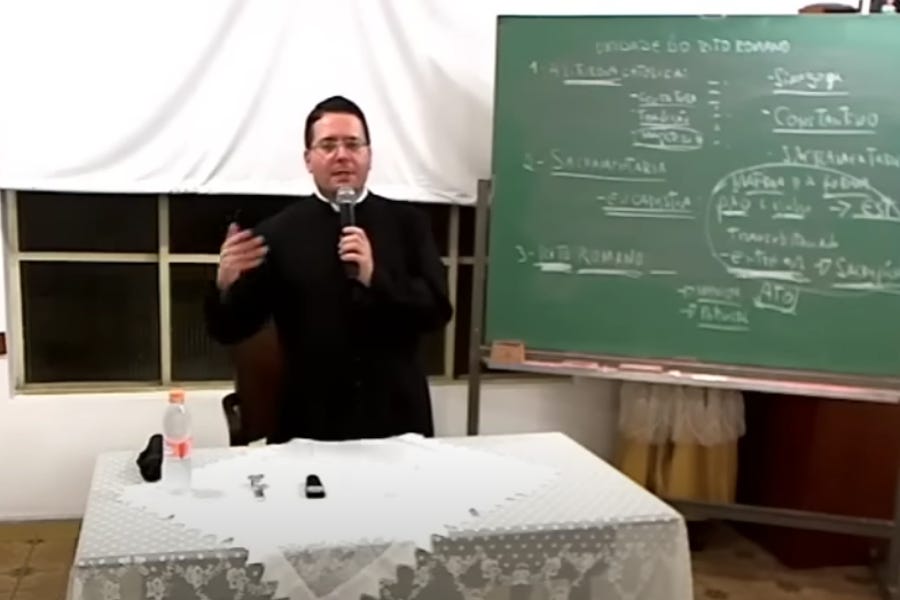Brazilian priest accused of schism faces canonical proceedings
Fr. Fábio Fernandes is accused of ignoring liturgical restrictions, and calling the pope a heretic.
A Brazilian priest is facing canonical proceedings after his archdiocese said he had made schismatic statements and ignored restrictions on the use of pre-conciliar liturgical rubrics.

The Archdiocese of São Paulo announced Nov. 29 that i…
